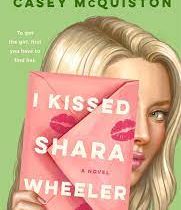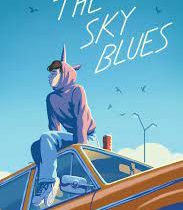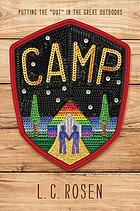 Reid, Raziel. When Everything Feels Like the Movies. Arsenal Pulp Press. 2015. $15.95. 171 pages. PB. 9781551525747.
Reid, Raziel. When Everything Feels Like the Movies. Arsenal Pulp Press. 2015. $15.95. 171 pages. PB. 9781551525747.
High school is not easy. Some kids fit right in, others are outcasts. For Jude, he’s a gay teen who doesn’t fit in the typical high school hierarchy. As he lovingly puts it, he’s “the flamer that lights the set on fire.” Inspired by the 2008 hate crime of Larry Fobes King, Reid creates the fictional world of Jude Rothesay within a small mining podunk. Despite what others think, he does what he wants and doesn’t feel the need to apologize for it. He’s horny, celeb-crazed, and quick-witted; but he’s also vulnerable, gut-wrenchingly honest, and fearless — which ultimately leads to the book’s poignant ending.
With ALA’s Banned Books Week coming to an end, this is perhaps one of the better challenged books I’ve read. The work itself is relatively short – coming in under two hundred pages. But do not let the length fool you – the witty dialogue, tender moments, and harsh teen betrayals will entice teens and adults alike. Reid displays his genius by having Jude compare the high school experience to Hollywood’s underbelly. The reader gets sucked into the melodrama that is Jude’s high school. Stereotypes abound — jocks, posers, and more. But Jude doesn’t try to be someone else; he bravely puts on his lip gloss, grows out his hair, and puts one heel in front of the other.
The book was recently challenged with a petition because of the “graphic nature” of the novel; challengers wanted to revoke the book’s Governor General’s Award for Children’s Literature (similar to the Printz Award, but for Canada) because it calls into question the standards on which the award is given. While the book is full of obscenities, sexual acts, drug use references, and violence, it portrays Jude’s life in a realistic light. Teens face many of the issues that reside within the book, and I think the book’s relatability is one of the reasons why Jude’s story is so compelling. Jude dreams of being a Hollywood star, but he instead comes crashing back down to reality and talks about his “stalkers” (bullies) and what the “paparazzi” (gossips) at school are posting about him on Twitter. It’s funny and tragic, melodramatic and real.
Besides the questioning of adult content, the story is spectacular. The pacing is spot on and Reid keeps the action going with shorter, explosive chapters. What’s really great about this novel, though, is that it is not just about Jude’s sexuality. While it’s a large plot point, he experiences a lot of other traumatic events that intertwine, including seeing his absent father, living with his mother who works as an exotic dancer, losing his virginity, a betrayal from his best friend, and getting bullied on a regular basis. While it’s hard to deal with one of the issues, imagine what it must be like to experience all of it at once. Jude handles it as best as he can, but beneath the facade there’s a lot of loneliness peeking out. We catch glimpses of it throughout the novel, and it makes us root for Jude to have a happy Hollywood ending.
I would recommend this novel for young adult collections, LGBTQ+ collections, and post-secondary classes revolving around GLBT literature (in doing online research, I’ve seen this book being listed on college syllabuses already). However, because of the explicitness of the novel, be prepared to defend the book. But as most of you know, great books are worth defending and this is no exception.
Judi Tichacek
Reference Librarian
Palos Hills, IL




